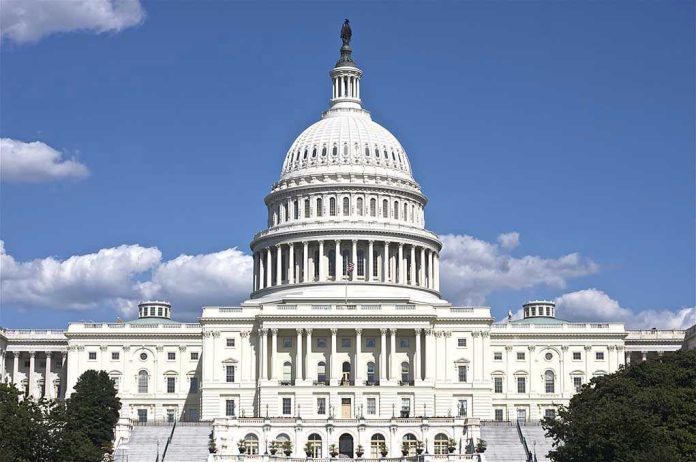
As Congress demands answers on Jeffrey Epstein’s abuse network, a lawmaker’s emotional breakdown spotlights the toll of past government secrecy and the urgent need for transparency in Washington.
Story Highlights
- Rep. Nancy Mace left a closed-door Congressional hearing in tears after hearing Epstein survivors’ testimony.
- Her reaction intensified bipartisan calls for the Department of Justice to release all Epstein-related files.
- The hearing marked a renewed push for accountability and government transparency after years of public frustration.
- The intersection of personal trauma and public policy has made this investigation a defining moment for Congress.
High-Profile Hearing Exposes Emotional and Political Stakes
On September 2, 2025, the House Oversight and Government Reform Committee convened a closed-door session with six survivors of Jeffrey Epstein’s abuse. Rep. Nancy Mace, a Republican from North Carolina and herself a survivor of sexual assault, attended the hearing. As survivors shared their stories, Mace became visibly distraught and left the session in tears. Her departure, later explained in a social media post as a full-blown panic attack, captured national attention and underscored the emotional toll such investigations take on lawmakers and witnesses alike.
The hearing forms part of Congress’s intensified efforts to investigate the Epstein case and demand accountability from the Department of Justice. After years of speculation, public outrage, and allegations of cover-ups spanning multiple administrations, lawmakers from both parties have united to pressure the DOJ to release all files related to Epstein’s criminal network. Mace’s experience has galvanized advocates for full disclosure, who argue that government secrecy has enabled high-profile offenders to escape justice while undermining faith in American institutions.
Bipartisan Demands for Transparency and Accountability
In the wake of the hearing, Congressional leaders—including House Speaker Mike Johnson and Chairman James Comer—joined Mace in calling for swift legislative action. They propose a bipartisan bill that would compel the DOJ to unseal documents, name names, and clarify the extent of government involvement or negligence in the Epstein case. Survivors and their advocates have echoed these demands, insisting that only full transparency can restore public trust and deter future abuses of power. This rare political consensus reflects widespread frustration with bureaucratic stonewalling and the perception that justice has been deferred for too long.
While the DOJ faces mounting political pressure, it must balance competing priorities: protecting the privacy of survivors, preserving the integrity of ongoing investigations, and responding to Congress’s oversight authority. Critics warn that further delays or excessive redactions would reinforce suspicions of a cover-up, fueling conspiracy theories and resentment among Americans who believe the system protects the powerful at the expense of the vulnerable.
Broader Implications for Survivors, Lawmakers, and the Public
The emotional reaction of Rep. Mace has highlighted the personal stakes involved for lawmakers navigating traumatic testimony and public scrutiny. Her experience resonates with millions of Americans who have lost faith in government accountability amid a series of scandals and perceived miscarriages of justice. For survivors, the renewed Congressional attention offers hope for recognition, closure, and systemic change—yet it also risks retraumatization as their stories become political flashpoints.
Beyond the immediate investigation, this episode signals a broader cultural reckoning with secrecy, elite privilege, and the need for institutional reform. As lawmakers debate legislative remedies and the DOJ weighs its next move, the outcome will shape how the government responds to elite criminality, survivor advocacy, and public demands for openness in the years ahead.
Expert Analysis and Ongoing Uncertainties
Experts in law and trauma recovery emphasize that true accountability requires both transparency and support for all affected parties. Legal scholars argue that releasing Epstein files is essential for restoring public confidence, while ethics commentators caution about balancing privacy with justice. Although Congressional records and reliable news outlets confirm the key facts, some uncertainty remains due to the confidential nature of survivor testimony and the DOJ’s limited disclosures. Still, the bipartisan push for answers represents a rare moment of unity in a deeply divided era, driven by a shared commitment to confronting past failures and protecting future generations.
Sources:
Rep. Nancy Mace Leaves Epstein Victims’ Testimony Hearing in Tears







